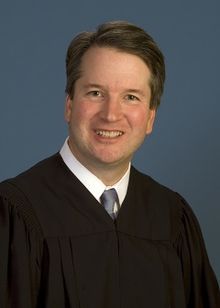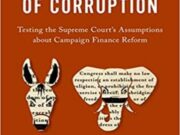A couple weeks ago, the Campaign Legal Center’s lobbyist, Meredith McGehee, took the pages of The Hill to excoriate Virginia for not passing more campaign finance restrictions. Because Virginia has “few restrictions on money in campaigns,” the ethics and bribery trial of former Governor Bob McDonnell, she assured her readers, was pretty much a foregone conclusion. Absent more restrictions on campaign finance, “we had better get used to” a lot more McDonnell-type trials.
We pointed out here that McGehee’s column was fundamentally dishonest, conflating McDonnell’s corruption – for which he is, after all, on trial – with the need for more campaign finance restrictions, even though McDonnell’s alleged ethical breaches did not stem from campaign contributions. We also noted that faux “reformers” such as McGehee never consider whether ethical scandals in heavily regulated states should lead us to question the value of regulation, even when those scandals come directly from campaign finance systems, such as misuse of government provided campaign funds.
Now The Washington Post reports that researchers at Indiana University at Bloomington and the City University of Hong Kong have concluded that Oregon is the “Best State in America,” at least when it comes to fending off public corruption. Surely something is amiss – why, Oregon – like Virginia – is one of just four states that places no limits on the size or source of contributions directly to politicians political campaigns. Worse still, Utah, another of the 4 states with no contribution limits, was also among the 10 least corrupt states.
We have noted many times in the past that Governing Magazine has long given deregulated states high marks for their quality of governance. Now we find they do pretty well on the corruption scale, too. We eagerly await an article from the Campaign Legal Center on how, if we enact their regulatory agenda, we can expect corruption to increase.
__________________________________________
Below is how the IU/City Univ. of Hong Kong study ranks the 11 states that place no limit on personal contributions (note Oregon, Utah, Virginia, and Missouri have no contribution limits at all – the other states have no individual contribution limits). The average ranking for these eleven states is 26.5, or right about in the middle, but the cohort is over-represented in both the top and the bottom, with three of the best seven but also three of the worst six. It should be noted that New Mexico, which had no contribution limits for the time covered by this study (1997-2008) ranked 23rd.
And, finally, the study provides some further vindication for Citizens United. States that banned corporate independent expenditures during the time covered by the study (pre-Citizens United) had an average rank of 27.3, or worse than those that did not limit corporate independent spending pre-Citizens United, and also slightly more corrupt than those that had no limits on individual contributions. Three of the four least corrupt states in this study, and seven of the ten least corrupt, did not ban corporate expenditures during this period.
1. Oregon
5. Iowa
7. Utah
16. Indiana
19. Texas
34. Virginia
35. Missouri
37. North Dakota
45. Alabama
46. Pennsylvania
50. Mississippi














